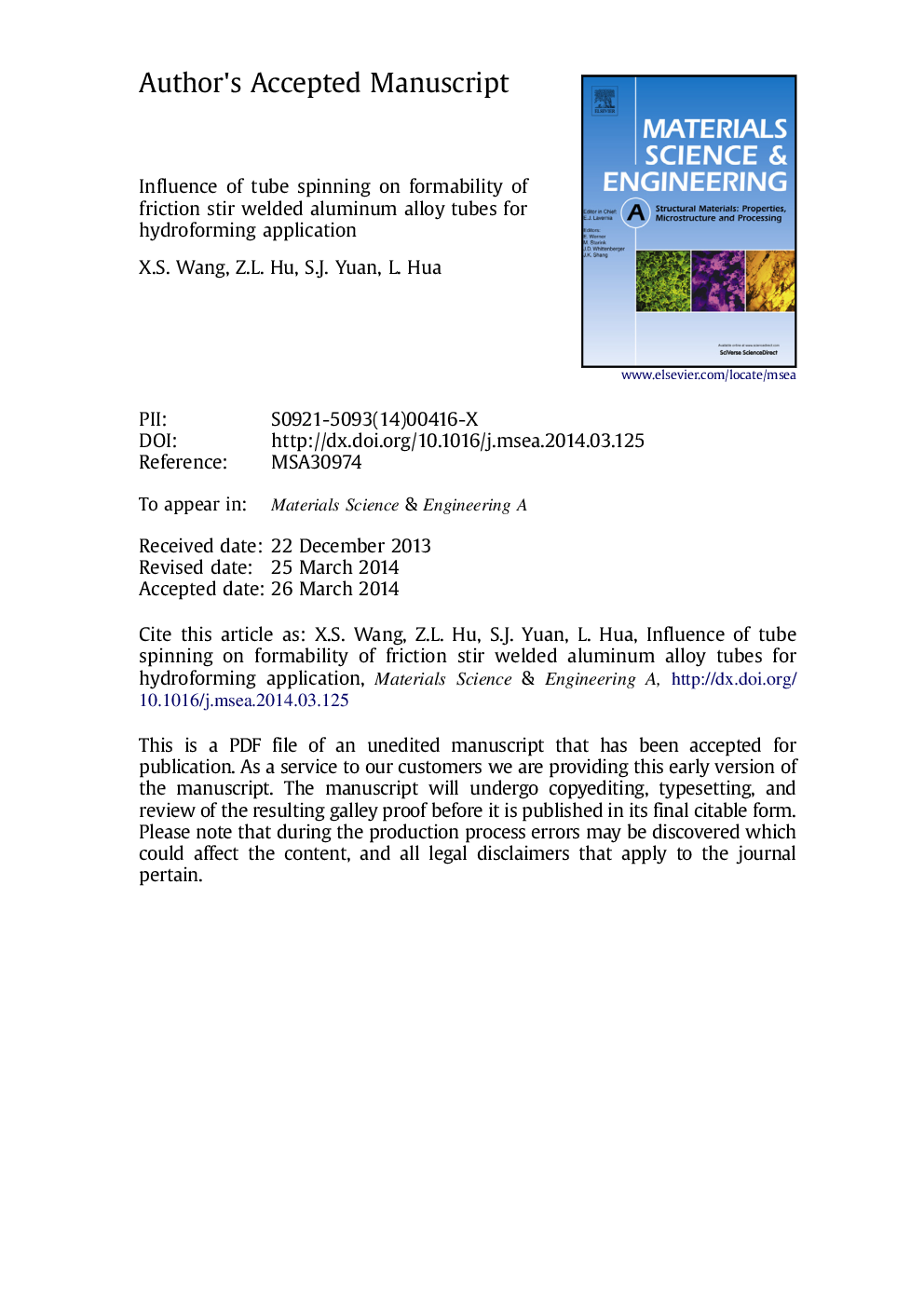| Article ID | Journal | Published Year | Pages | File Type |
|---|---|---|---|---|
| 1574969 | Materials Science and Engineering: A | 2014 | 22 Pages |
Abstract
Due to economic and ecological reasons, the application of tailor-welded blanks of aluminum alloy has gained more and more attention in manufacturing lightweight structures for automotives and aircrafts. In the study, the research was aimed to highlight the influence of spinning on the formability of FSW tubes. The microstructural characteristics of the FSW tubes during spinning were studied by electron backscattered diffraction (EBSD) and transmission electron microscopy (TEM). The formability of the FSW tubes with different spinning reduction was assessed by hydraulic bulge test. It is found that the spinning process shows a grain refinement of the tube. The grains of the FSW tube decrease with increasing thickness reduction, and the effect of grain refinement is more obvious for the BM compared to that of the weld. The difference of grain size and precipitates between the weld and BM leads to an asymmetric W-type microhardness distribution after spinning. The higher thickness reduction of the tube, the more uniform distribution of grains and precipitates it shows, and consequently results in more significant increase of strength. As compared with the result of tensile test, the tube after spinning shows better formability when the stress state changes from uniaxial to biaxial stress state.
Related Topics
Physical Sciences and Engineering
Materials Science
Materials Science (General)
Authors
X.S. Wang, Z.L. Hu, S.J. Yuan, L. Hua,
